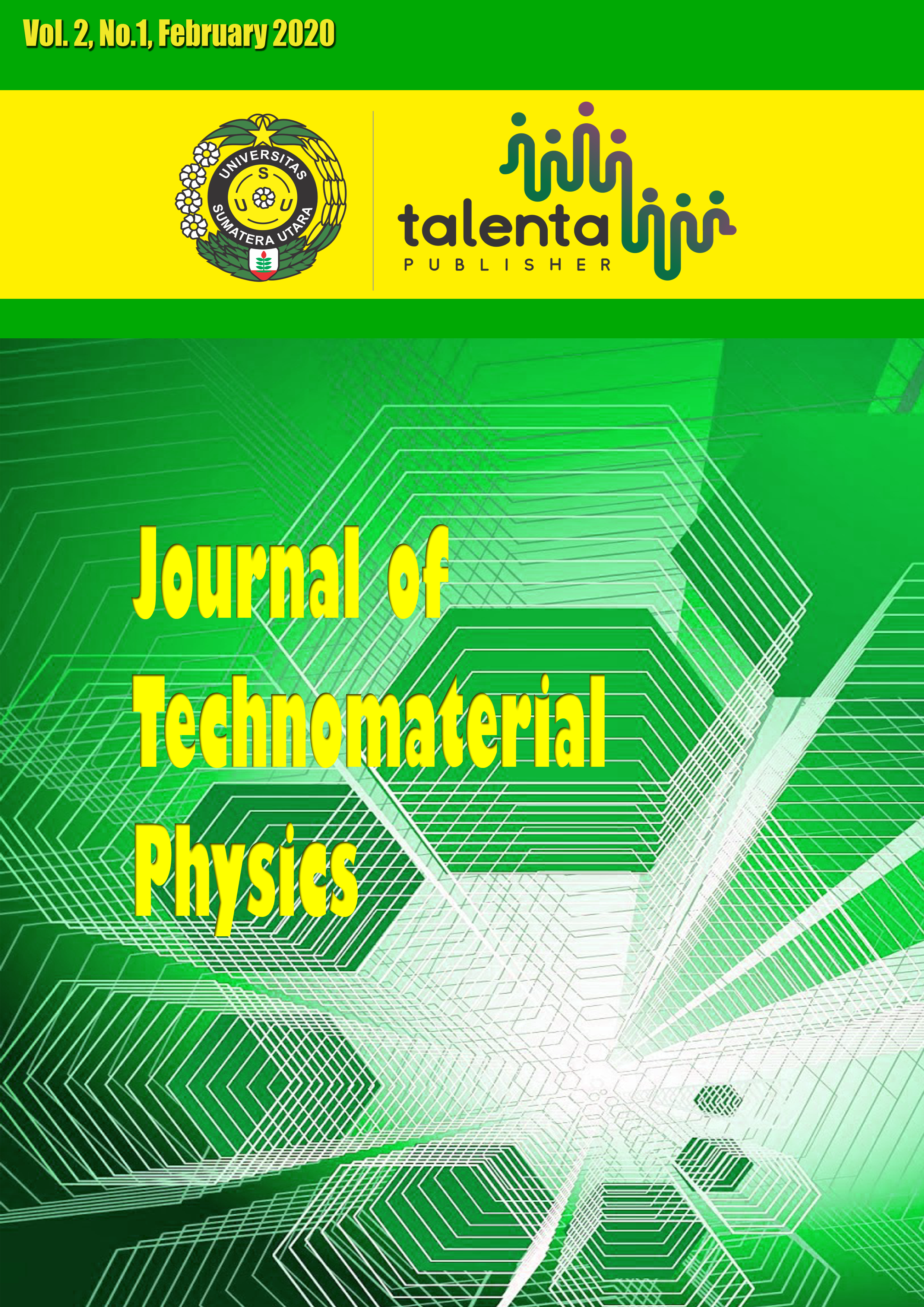Efficiency of Ketapang (Terminalia catappa L.) Leaves Tannin Extract as Organic Inhibitor Against Corrosion Rate of Iron Metal in Seawater
DOI:
https://doi.org/10.32734/jotp.v2i1.5268Keywords:
ketapang leaves, organic inhibitor, iron metal, seawater, corrosion rate, weight lossAbstract
The research is about effect of immersion time and mechanical properties on the rate of corrosion of ferrous metals by the addition of Ketapang (Terminalia catappa L.) leaf extract as an organic inhibitor in the seawater environment. In this study, ketapang leaf extract was used as a natural inhibitor to inhibit the rate of corrosion of ferrous metals. This inhibitor is used on iron metal plates which are immersed in corrosive media, namely sea water with variations in the composition of the inhibitors used at 0; 10% V; 20% V, and 40% V, with immersion time of 3 and 6 days. The characterizations tested included measurement of density, corrosion rate, inhibitor efficiency, and hardness testing using the Vickers method. From the measurement results, the density value decreases with the addition of the concentration of the inhibitor both on immersion 3 days and 6 days. The value of hardness increases with increasing composition of the inhibitor. The optimum hardness value is 165.03 N/m2 with immersion time of 6 days at an inhibitor concentration of 40% and a minimum hardness value of 145.603 N/m2 on immersion 6 days with no inhibitor. The smallest corrosion rate was obtained by samples with a composition of 40% inhibitor of 2.77 mpy with immersion time of 3 days and 1.33 mpy with immersion time of 6 days. And the efficiency value of Ketapang leaf extract inhibitors reached 47.01 % in the composition of 40% in the seawater environment with immersion time of 6 daysketapang leaves
Downloads
Downloads
Published
Issue
Section
License
Copyright (c) 2020 Journal of Technomaterial Physics

This work is licensed under a Creative Commons Attribution-ShareAlike 4.0 International License.












